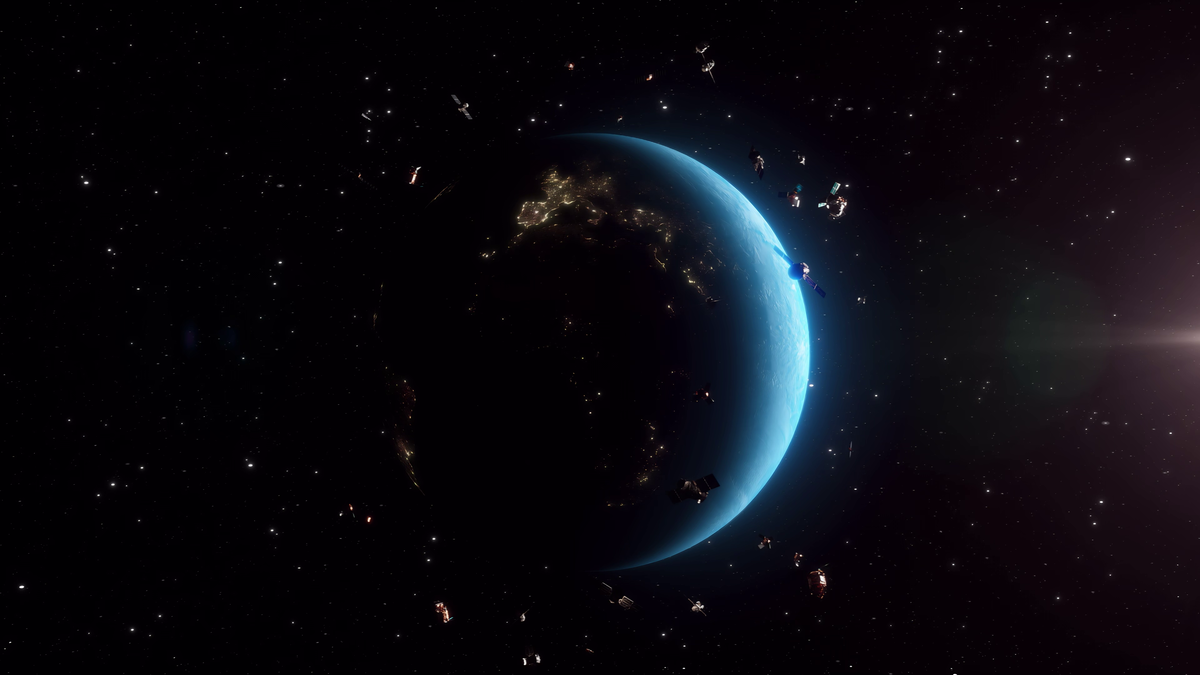With an estimated 20,000 satellites expected to be launched in the next decade, Low Earth Orbit (LEO) is becoming increasingly crowded and space congestion is an increasingly pressing issue.
This surge in satellite deployments has led to what experts are calling “an unprecedented space traffic jam,” with serious implications for space debris and the safe operation of existing satellites.
Space Congestion
The European Commission has recognized the pressing need to address space congestion and the associated risks posed by space debris to both public and private satellite systems such as Galileo, Copernicus, and EGNOS.
To tackle these challenges head-on, the Union has proposed a holistic approach to Space Traffic Management. In support of this initiative, the European Union Agency for the Space Programme (EUSPA) has been entrusted with a critical role.
As of 1st July, EUSPA has taken charge of operating the Space Surveillance and Tracking (SST) Front Desk, following a decision by the European Commission in June 2022.
This marks a significant milestone in the Union’s efforts to effectively manage space traffic and ensure the long-term sustainability of outer space activities.
The Role of EUSPA’s EU SST Front Desk
The primary responsibility of the EU SST Front Desk is to serve as an interface between users and the SST services. These users include spacecraft owners and operators, EU institutions, and EU Member States.
The Front Desk’s key objective is to support users in utilizing the dedicated SST Portal and help them leverage the available services effectively.
Additionally, the Front Desk plays a crucial role in providing service performance information to stakeholders and promoting the adoption of SST services.

EUSPA, in collaboration with the EU SST Partnership comprising 15 EU Member States, aims to provide space safety services to over 190 registered organizations.
Their collective efforts seek to safeguard more than 400 satellites from potential collisions with space debris or operational satellites.
Moreover, the EU SST Front Desk will actively monitor and detect break-ups in space and the uncontrolled re-entry of space objects into Earth’s atmosphere.
This proactive approach will enhance overall space situational awareness and contribute to the safe and sustainable use of space.
Seamless Transition and Service Continuity
To ensure a smooth transition and minimize disruptions to users, the transfer of responsibilities from the previous operator, SatCen, was meticulously executed.
The services offered by the EU SST Front Desk have been seamlessly provided as expected, and all users have been duly informed of the updated contact details for the SST Helpdesk.
Situated within EUSPA’s Galileo Security Monitoring Centre (GSMC) in San Martín de la Vega, Madrid, Spain, the new premises of the EU SST Front Desk serve as a dedicated hub for efficient space traffic management.
By assuming control of the Front Desk, EUSPA significantly contributes to the EU Space Traffic Management approach, working towards the development of a comprehensive strategy to ensure the safe and sustainable utilization of space and space congestion management.
This commitment aims to preserve the competitiveness of the EU space industry while advancing the greater objectives of the European Union.
A User-Centric Approach to Space Traffic Management
EUSPA and the EU SST Partnership remain steadfast in their dedication to public service in collision avoidance, re-entry analysis, and fragmentation analysis.
Through the EU SST Front Desk, they strive to improve the safety of space operations and promote the long-term sustainability of outer space activities.
By placing users at the core of their commitment, EUSPA and the EU SST Partnership aim to address the challenges of space congestion collaboratively.

